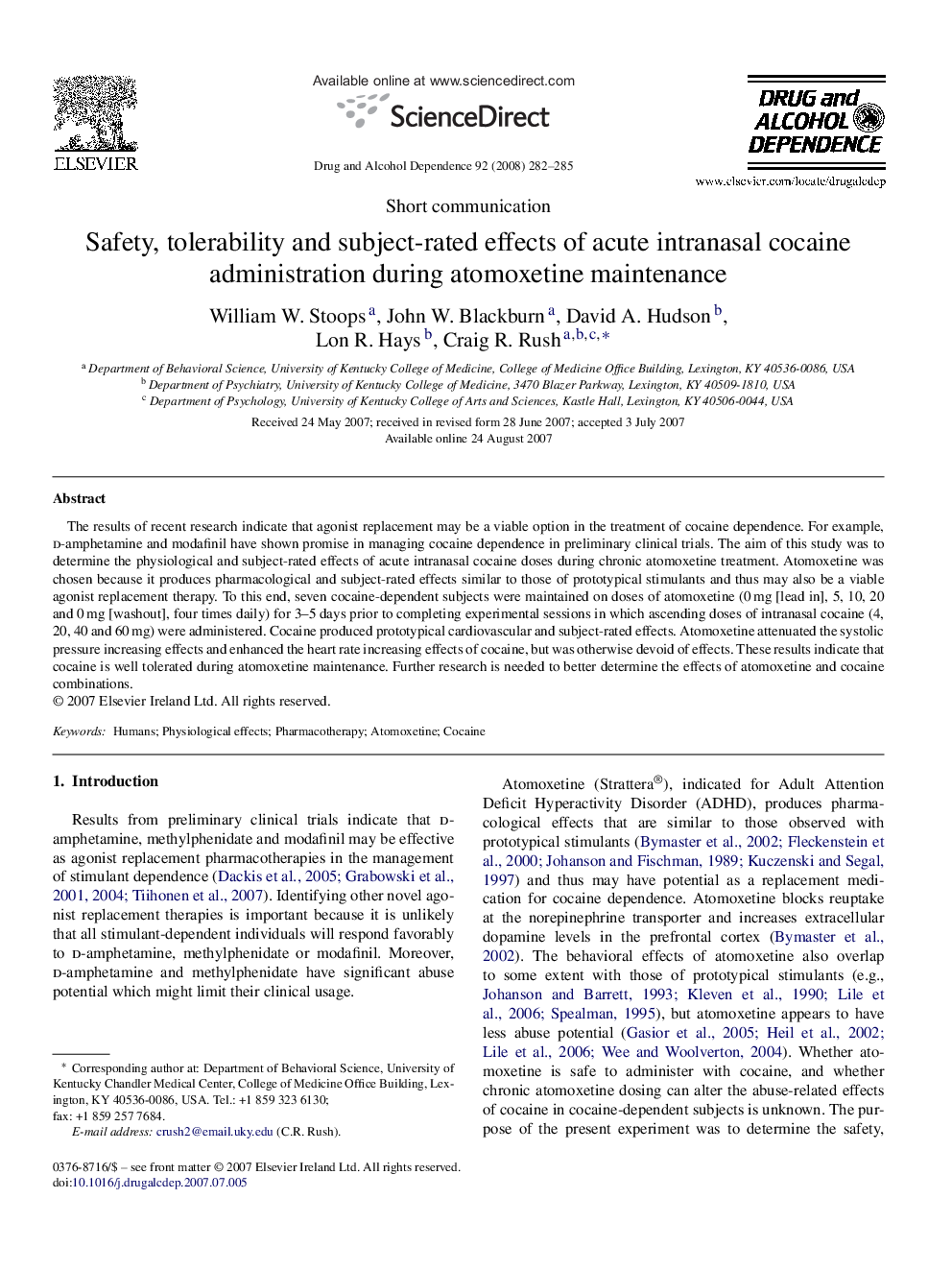| Article ID | Journal | Published Year | Pages | File Type |
|---|---|---|---|---|
| 1071674 | Drug and Alcohol Dependence | 2008 | 4 Pages |
Abstract
The results of recent research indicate that agonist replacement may be a viable option in the treatment of cocaine dependence. For example, d-amphetamine and modafinil have shown promise in managing cocaine dependence in preliminary clinical trials. The aim of this study was to determine the physiological and subject-rated effects of acute intranasal cocaine doses during chronic atomoxetine treatment. Atomoxetine was chosen because it produces pharmacological and subject-rated effects similar to those of prototypical stimulants and thus may also be a viable agonist replacement therapy. To this end, seven cocaine-dependent subjects were maintained on doses of atomoxetine (0Â mg [lead in], 5, 10, 20 and 0Â mg [washout], four times daily) for 3-5 days prior to completing experimental sessions in which ascending doses of intranasal cocaine (4, 20, 40 and 60Â mg) were administered. Cocaine produced prototypical cardiovascular and subject-rated effects. Atomoxetine attenuated the systolic pressure increasing effects and enhanced the heart rate increasing effects of cocaine, but was otherwise devoid of effects. These results indicate that cocaine is well tolerated during atomoxetine maintenance. Further research is needed to better determine the effects of atomoxetine and cocaine combinations.
Related Topics
Life Sciences
Neuroscience
Behavioral Neuroscience
Authors
William W. Stoops, John W. Blackburn, David A. Hudson, Lon R. Hays, Craig R. Rush,
